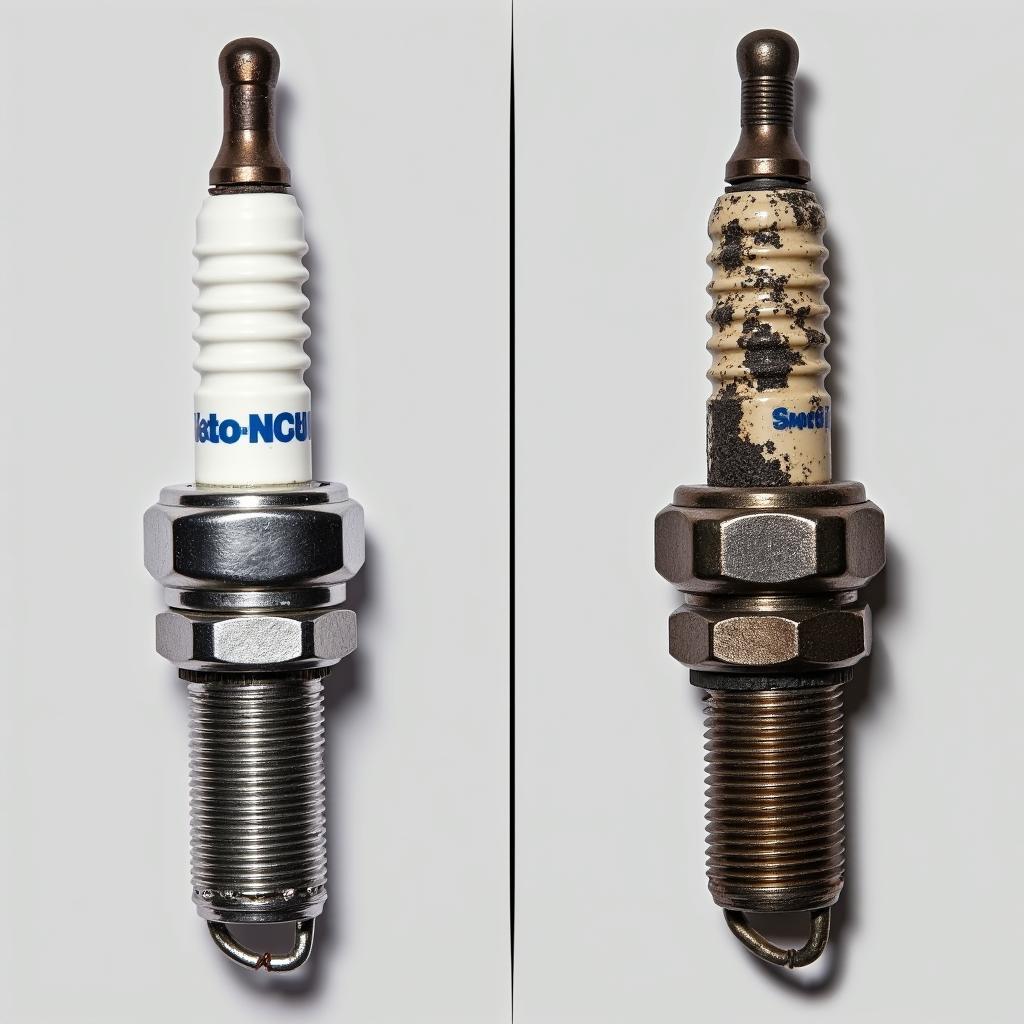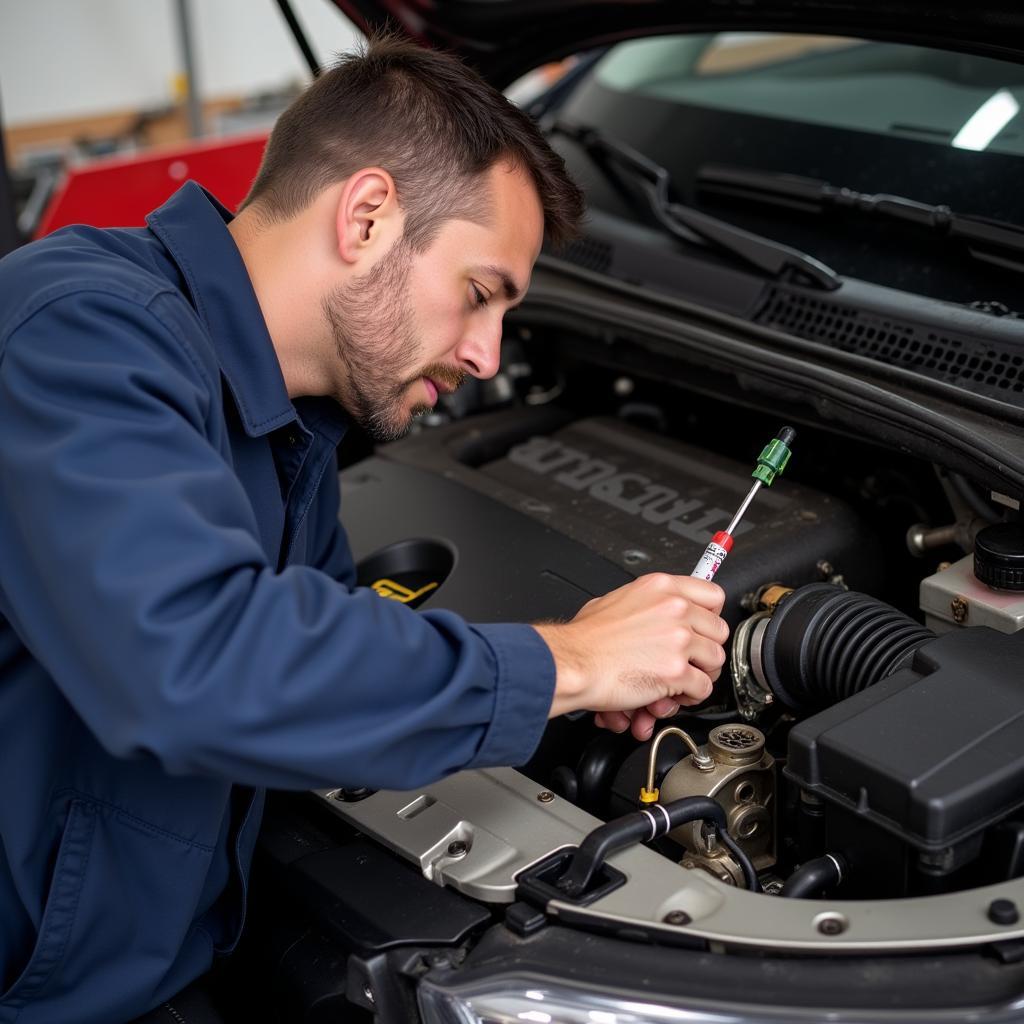Car Feels Sluggish After Service: What Could Be Wrong?
So, you just got your car serviced, expecting a boost in performance, but instead, it feels sluggish? That’s frustrating! While regular maintenance is crucial for keeping your car running smoothly, there are instances where a car might feel sluggish after a service. Let’s dive into the common culprits behind this unwelcome phenomenon.
Possible Reasons Your Car Feels Sluggish After Service
Several factors could be contributing to your car’s lackluster performance after a service. Here are some of the most common issues:
1. Incorrect Oil Viscosity
One possible reason your car feels sluggish is the use of incorrect oil viscosity during your service. Motor oil is the lifeblood of your engine, and using the wrong type can lead to increased friction and reduced engine efficiency. If the oil is too thick, it won’t flow properly, leading to sluggish acceleration and reduced fuel economy.
Expert Insight: “Always refer to your owner’s manual for the manufacturer’s recommended oil viscosity for your specific car model. Using the wrong oil can lead to performance issues and even engine damage in the long run,” says John Miller, Senior Automotive Technician at Miller’s Auto Repair.
2. Clogged Air Filter
Your engine needs a constant supply of air to function properly. A clogged air filter restricts airflow to the engine, resulting in a “suffocating” effect that leads to sluggish acceleration and reduced power.
Pro Tip: Air filters are generally inexpensive and easy to replace. Consider inspecting and replacing your air filter every 12,000 miles or as recommended in your owner’s manual.
3. Spark Plug Issues
Spark plugs ignite the air-fuel mixture in the engine cylinders. Worn-out or fouled spark plugs can cause misfires, leading to sluggish acceleration, rough idling, and reduced fuel efficiency.
 car spark plugs comparison
car spark plugs comparison
4. Fuel System Problems
Problems within the fuel system, such as a clogged fuel filter or a malfunctioning fuel pump, can restrict the flow of fuel to the engine, resulting in sluggish performance and difficulty starting the car.
5. Sensor Malfunctions
Modern cars rely heavily on sensors to monitor and adjust engine performance. A faulty sensor, such as a mass airflow sensor (MAF) or an oxygen sensor, can send incorrect information to the engine control unit (ECU), leading to a variety of performance issues, including sluggishness.
Expert Insight: “Diagnosing sensor-related issues requires specialized equipment and expertise. If you suspect a sensor problem, it’s best to take your car to a qualified mechanic,” advises Emily Chen, Certified Automotive Technician and owner of Chen’s Auto Services.
6. Transmission Problems
If your car feels sluggish, especially when shifting gears, there could be an issue with the transmission. Transmission fluid that’s low or dirty can cause friction and slipping, leading to sluggish acceleration and poor performance.
 mechanic inspecting car transmission
mechanic inspecting car transmission
7. Brake Issues
While not directly related to engine performance, a sticking brake caliper or dragging brake pads can create resistance, making your car feel sluggish. If you notice a burning smell or your car pulls to one side when braking, it’s essential to have your brakes inspected immediately.
What to Do If Your Car Feels Sluggish After Service
If your car feels sluggish after a recent service, it’s essential to address the issue promptly. Here’s what you can do:
-
Review Your Service Records: Check the service records to see what work was performed during the recent service. Look for any parts replaced or fluids changed.
-
Contact Your Mechanic: Reach out to the mechanic or service center where you had your car serviced and explain the issue. A reputable mechanic will be happy to diagnose the problem and rectify any issues related to their service.
-
Seek a Second Opinion: If you’re not satisfied with the response or diagnosis from your initial mechanic, consider getting a second opinion from a different reputable mechanic.
Conclusion
Experiencing sluggishness in your car after a service can be frustrating, but it’s usually due to a solvable issue. By understanding the potential causes and taking the appropriate steps, you can restore your car’s performance and enjoy a smooth and enjoyable ride.

